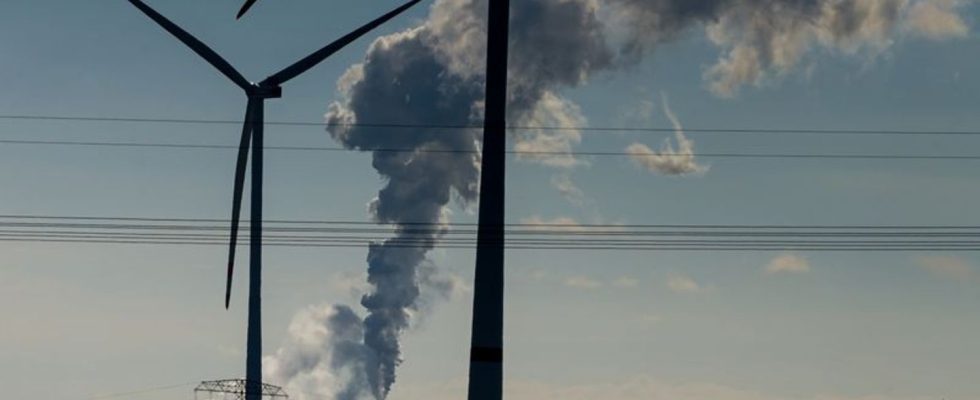climate
Bundestag approves reform of the climate protection law
Wind turbines in the Bad Lauchstädt energy park, a power line and smoking chimneys in an industrial area. photo
© Heiko Rebsch/dpa
The farewell was still in the balance. But the Bundestag has now passed changes to the Climate Protection Act. The opposition sees a softening.
The Bundestag has approved the controversial reform of the Climate protection law passed. An application against this by CDU MP Thomas Heilmann had failed at the Federal Constitutional Court the evening before. The reform of the law came about primarily at the request of the FDP.
The CDU energy politician Andreas Jung spoke of a gutting of the climate protection law and a step backwards for climate protection. Traffic light representatives defended the reform. The law still has to pass the Federal Council.
The reform of the Climate Protection Act provides for fundamental changes. So far, if individual sectors such as transport or buildings fail to meet legal requirements for carbon dioxide emissions, the responsible ministries must submit emergency programs the following year.
Last year, the traffic and building sectors failed to meet the requirements. Transport Minister Volker Wissing (FDP) had threatened to take drastic measures, including driving bans on the weekend, if the Bundestag did not decide on the reform of the Climate Protection Act by summer – then Wissing would have had to present an immediate program so that the transport sector met the climate targets.
Looking towards the future
With the reform, compliance with the climate targets should no longer be checked retroactively by sector, but rather with a view to the future, over a period of several years and across sectors. What is crucial is that climate goals are achieved overall. If it becomes apparent in two consecutive years that the federal government is not on track to meet its climate target for 2030, it will have to make adjustments.
Jung criticized the traffic lights for giving themselves carte blanche. With the weakening of the binding sector targets, the heart of the law will be taken away.
The FDP parliamentary group leader Christian Dürr, on the other hand, said that the old climate protection law was a planned economy. The climate doesn’t care at all whether CO2 emissions are saved in the energy, industrial or transport sectors. The Green Party parliamentary group leader Katharina Dröge said: “The climate protection law looks forward in the future.” The emissions targets remained. “Not a single gram of CO2 may be emitted in the future.” However, Dröge admitted that the Greens would have liked the individual sectors to have even clearer responsibility.
By 2030, Germany must reduce its greenhouse gas emissions by at least 65 percent compared to 1990. Greenhouse gases are expected to fall by 88 percent by 2040 and greenhouse gas neutrality should be achieved by 2045 – so no more greenhouse gases will be emitted or sequestered again.

